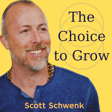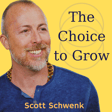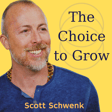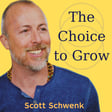
James ‘Fish’ Gill on Falling in Love with Humanity
In this powerful episode, Scott Schwenk is joined by heart coach and author James “Fish” Gill to explore radical compassion, conscious communication, and the deep human longing behind even the most painful behaviors. Together, they unpack what it means to attune to our own pain and longing, recognize the humanity in others, and transform rupture into connection. From grief to traffic rage to childhood wounds, this is a soul-deep conversation on how we begin to fall in love with humanity—starting with ourselves.
James ‘Fish’ Gill - Heart coach, yoga teacher, author and transformational teacher
James ‘Fish’ Gill is a heart coach, yoga teacher and transformational facilitator based in Perth, Western Australia. He supports individuals and couples to grow mutual understanding and emotional intimacy in any moment of upset, rupture or conflict, in all the relationships that matter most. The conscious, heart-led communication approach that Fish transmits to his clients has a broad reach internationally.
Fish has supported individuals, couples, businesses, and community groups to regrow trust, connection and understanding in the face of conflict, complexity and change since 2008. His warm, compassionate style draws on his experiences as a facilitator, educator, yoga teacher, actor and loving father of two young adults. You can learn more about his work at https://www.leadbyheart.com/ and on Instagram @james_fish_gill
Scott Schwenk - Master coach, spiritual teacher, culture architect
Scott Schwenk’s teachings, courses and private mentoring guide leaders, seekers and creatives to explore their deepest selves in service of thriving on all levels of being, both individually and relationally.
Host and creator of the podcast The Choice To Grow, Scott is known for his hugely popular courses and workshops with OneCommune.com, Younity.com, Wanderlust Festivals, and Unplug Meditation, Scott has been catalyzing the inner evolution of others for decades: helping them to grow, transform obstacles into opportunities, and find Love within.
Scott spent several years living and studying in a meditation monastery which introduced him to the core body of Tantric meditation traditions which continue to flow through each of his teachings. Scott continues to study and teach from two key Tantric lineage streams.
Apprenticeships in leadership development, meditation and philosophy training, shadow work/shadow resolution and spiritual awakening are all part of Scott’s development into the thought-leader that he is today. He continues to refine his offerings studying and practicing with key innovators at the leading edges of human development.
Scott’s teachings support the entire person to not only progressively recognize, stabilize and embody our inextricable oneness with the source of creation (Waking Up), but also to resolve the wounds of the past (Cleaning Up), continually expand our capacities for wider and more inclusive perspectives on any moment (Growing Up) and creatively and joyfully participate and collaborate with all of life as a loving thriving human being (Showing Up).
You can explore Scott’s courses, workshops, retreats, training and master coaching at https://scottschwenk.com and can find him on Instagram @thescottschwenk.
"Scott Schwenk is a deeply skilled teacher and healer, with a rare and authentic gift for helping people create positive inner change in their lives."
~Sally Kempton (aka Swami Durgananda),
Master meditation teacher and author of Meditation for the Love of It and Awakening Shakti.



